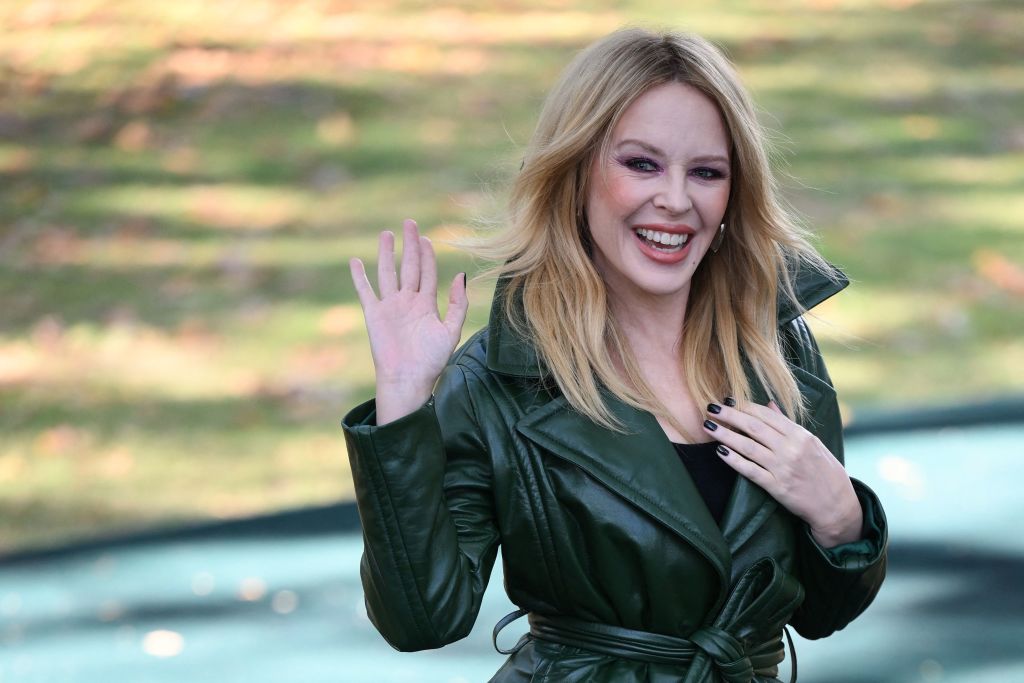Kylie’s comeback proves she’s still got it – and highlights ageism in the music industry

Kylie’s 16th studio album Tension is out now. (Credit: BMG)
Kylie's 16th studio album Tension is out now. (Credit: BMG)
With the success of “Padam Padam” and glowing reviews for her 16th studio album, Kylie is officially in what you might call her third imperial phase.
The first phase came when she started racking up hits with Stock, Aitken and Waterman at the tail end of the 80s. Next up was her spectacular career revival with “Spinning Around” in 2000. Now, 23 years on, the Aussie songstress is doing it again.
It’s been a remarkable few months for Kylie and her legion of loyal fans, but that doesn’t mean it’s been easy.
She has always had to fight for her place at the table, and her recent career resurgence has been no different. Even as she re-emerges as one of pop music’s great trendsetters, she’s had to push back against an industry that is obsessed with youth and with finding the “next big thing”.
That all came to a head early on in the campaign for the latest studio album. When “Padam” was released, most assumed it would do what all recent Kylie singles had: summon her fan base for the start of a new era. But it ended up being an entirely different beast.
First came the memes, then it erupted on TikTok. Before long, the song started shooting up the singles charts, giving Kylie her first top 10 single in the UK since “All The Lovers” in 2010.

It was an incredible moment, but music industry gatekeepers did their best to stop Kylie from getting there. Even as “Padam” became the song of the summer and a bona fide gay anthem, some radio stations seemingly refused to play it. BBC Radio 1 eventually added the track to its C-list – a move described by the song’s co-writer and producer Lostboy as “a bit of an insult”.
In an interview with The Independent, he claimed that the single didn’t get the support it deserved because of a heady mix of sexism and ageism.
Radio 1 regularly plays songs by David Guetta, who is the same age as Kylie (55), so what is it about the princess of pop that is deemed “too old” for youth radio?
Kylie is subverting industry expectations
It’s got a lot to do with sexism and ageism, but it’s also down to the “pop star to legacy act” pipeline that the music industry has clung to so fiercely. When a pop artist is young and at the start of their career, they’re seen as being in their prime. But when they reach middle age, they’re often written off as either a bit of a joke or a “legend” who can be rolled out for Pride festivals and charity campaigns – a space that’s been carved out for musicians who are no longer seen as relevant to contemporary audiences.
The problem is that the Kylies of this world don’t fit into that mould. Instead of settling into greatest hits performances, she has continued to deliver ecstatic, euphoric pop songs, racking up new fans and listeners with each successive (and successful) album.

The music industry can apparently handle a “legacy” artist having a number-one album, but they clearly don’t know what to do when they stumble upon a genuine crossover hit such as “Padam”. Nobody expected Kylie to come back and win over a massive cohort of younger new fans, or think she would blow up on TikTok – and yet, here she is.
The new album, Tension, has proved to be the career resurgence fans craved, and Kylie looks set for superstardom once more.
That was made clearer than ever when she took to the stage at the BBC Radio 2 in the Park festival in Leicester on Saturday (16 September). I was lucky enough to be there, and from the moment she came on stage, it was clear this wasn’t going to be a simple greatest hits rehash.
Kylie held the audience in the palm of her hand, getting everybody singing along to smashes of yesteryear such as “Can’t Get You Out of My Head” while setting the place (metaphorically) on fire with the title track from the new album.
It was an extraordinary moment – and proved once and for all that the industry’s pop star to legacy act pipeline and its ageist formulas just don’t make sense.
Some artists retire gracefully or fade into obscurity, but Kylie has proven time and again that her curiosity for pop music, and her love of a good song, will ensure she remains the trendsetter she’s always been.

If Kylie’s third career resurgence proves anything, it’s that it’s time music industry moguls realised that people listening at home are less interested in an artist’s age than ever before. What they care about is a good song: they want something with addictive visuals, iconic dance sequences, while many more want something they can scream along to in a nightclub.
It’s fascinating to think that, just a decade ago, shows such as The X Factor shunted 25 year olds into their “older” category. Around the same time, aged just 22, Taylor Swift was writing songs about an intense fear that she would, one day, be replaced by a younger model.
It’s liberating to see those limiting structures finally unravelling – and Kylie is playing her part by simply being too good for the industry to toss aside.

